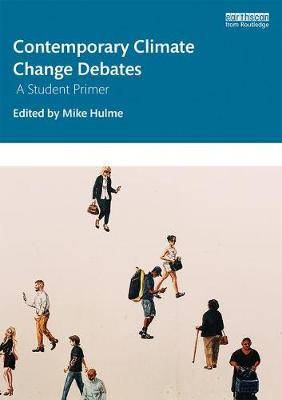-
Contemporary Climate Change Debates is an innovative textbook which tackles some of the difficult questions raised by climate change.
For the complex policy challenges surrounding climate adaptation and resilience, structured debates become effective learning devices for students. This book is organized around fifteen important questions, and is split into four parts:
What do we need to know?
What should we do?
On what grounds should we base our actions?
Who should be the agents of change?
Each debate is addressed by two leading academics who present opposing viewpoints. Through this format the book is not only designed to introduce students of climate change to different arguments prompted by these questions, but also provides a unique opportunity for them to engage in critical thinking and debate amongst themselves. Each chapter concludes with suggestions for further reading and for discussion questions for use in student classes.
Drawing upon the social sciences and humanities to debate these ethical, cultural, legal, social, economic, technological and political roadblocks,
Contemporary Climate Change Debates is an innovative textbook which tackles some of the difficult questions raised by climate change.
For the complex policy challenges surrounding climate adaptation and resilience, structured debates become effective learning devices for students. This book is organized around fifteen important questions, and is split into four parts:
What do we need to know?
What should we do?
On what grounds should we base our actions?
Who should be the agents of change?
Each debate is addressed by two leading academics who present opposing viewpoints. Through this format the book is not only designed to introduce students of climate change to different arguments prompted by these questions, but also provides a unique opportunity for them to engage in critical thinking and debate amongst themselves. Each chapter concludes with suggestions for further reading and for discussion questions for use in student classes.
Drawing upon the social sciences and humanities to debate these ethical, cultural, legal, social, economic, technological and political roadblocks,





